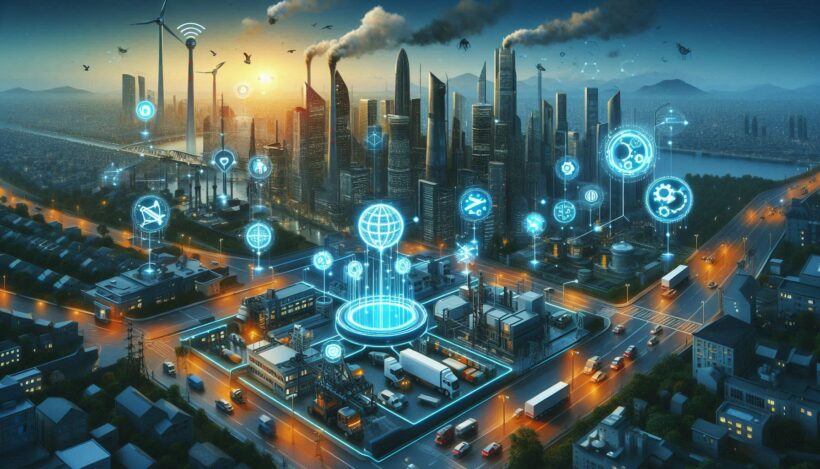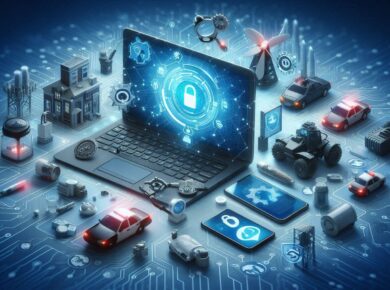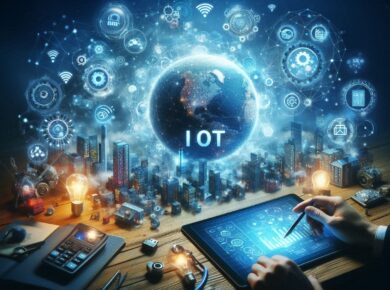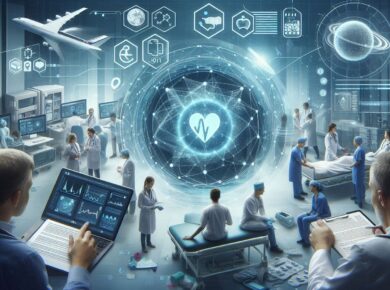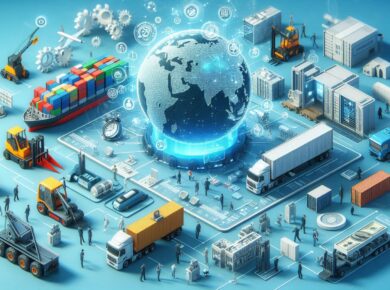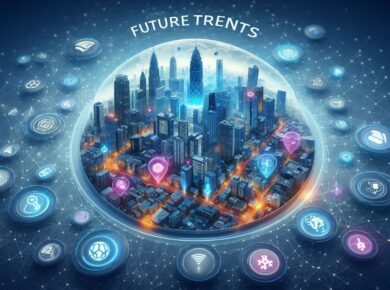Table of Contents
The Internet of Things (IoT) is at the forefront of technological advancements, influencing industries worldwide by connecting devices, collecting data, and automating processes. IoT solutions improve efficiency, enhance productivity, and drive smarter decision-making. In this article, we explore the top 10 IoT applications that are reshaping various sectors and revolutionizing how industries operate.
1. Smart Manufacturing
How IoT Transforms Production
In manufacturing, IoT enables predictive maintenance, real-time monitoring, and automation of machinery. Sensors embedded in equipment collect data on performance and potential issues, helping to reduce downtime and enhance productivity. This predictive capability means manufacturers can anticipate when machinery needs servicing, preventing costly breakdowns.
Benefits
- Improved production efficiency
- Enhanced quality control
- Reduced operational costs
2. Healthcare Monitoring
Revolutionizing Patient Care
IoT devices have a significant impact on healthcare, enabling remote monitoring of patients through connected devices that track vital signs and health data. Wearables like smartwatches and health monitoring patches transmit information to healthcare providers, allowing for proactive treatment and improved patient outcomes.
Examples
- Remote health monitoring for chronic disease management
- Real-time data collection for emergencies
3. Smart Cities
Creating Sustainable Urban Environments
IoT technology plays a crucial role in building smart cities by managing resources efficiently and enhancing the quality of life for residents. Applications include traffic management systems, smart lighting, and waste management solutions that adjust based on usage and need.
Key Features
- Real-time traffic updates to reduce congestion
- Energy-efficient street lighting that adapts to the environment
- Smart water and waste systems for optimized resource use
4. Connected Agriculture
Boosting Agricultural Productivity
IoT applications in agriculture support farmers by providing insights into soil health, weather conditions, and crop needs. Connected sensors help monitor water levels and soil moisture, enabling precision farming practices that optimize water use and increase yield.
Technological Tools
- Automated irrigation systems
- Drones for aerial monitoring of crops
- Livestock tracking for health and location data
5. Retail Industry
Enhancing Customer Experiences
IoT reshapes the retail landscape by enabling smart inventory management, personalized customer experiences, and interactive store setups. IoT-driven systems can track stock levels in real-time and automatically reorder products, ensuring inventory is always stocked to meet demand.
Examples
- Smart shelves with sensors that update stock data
- Beacons that send promotions to customers’ smartphones
6. Smart Homes
The Heart of IoT for Consumers
Smart home technology has become increasingly popular, featuring interconnected devices such as smart thermostats, lights, and home security systems. Users can control these devices remotely, enhancing convenience, safety, and energy savings.
Key Benefits
- Remote access and automation of home functions
- Integration with voice assistants for hands-free control
7. Energy Management
Optimizing Energy Consumption
IoT is vital in the energy sector, assisting in monitoring power consumption and optimizing energy distribution. Smart grids collect data on energy use, enabling utilities to manage supply more effectively and encourage conservation during peak times.
Applications
- Smart meters for tracking household and industrial energy usage
- Automated demand response systems for better grid stability
8. Logistics and Supply Chain Management
Streamlining Operations
IoT enables real-time tracking of shipments and inventory through GPS and RFID tags. This technology improves transparency across the supply chain, reduces losses, and helps companies plan more effectively.
Advancements
- Automated inventory checks
- Condition monitoring to prevent spoilage during transport
9. Automotive Industry
Driving Smarter Vehicles
Connected vehicles rely on IoT for features such as navigation, predictive maintenance, and semi-autonomous driving. IoT technology monitors vehicle health, alerts drivers to potential issues, and even supports vehicle-to-vehicle (V2V) communication to avoid accidents.
Key Technologies
- Smart infotainment systems
- Enhanced safety with real-time alerts
10. Smart Offices
Transforming the Workplace
IoT devices in offices create a more comfortable, efficient working environment. Smart climate control, lighting systems, and energy management tools help companies reduce their carbon footprint and increase employee productivity.
Benefits
- Energy savings through intelligent climate and light control
- Improved workplace safety with smart surveillance
Conclusion
The impact of IoT on industries today is profound, enhancing efficiency, safety, and the overall user experience. As technology advances, IoT is set to expand its reach, driving innovation across even more sectors. Embracing IoT applications will be crucial for businesses and industries that aim to stay competitive and meet the demands of a rapidly evolving world.
Understanding and adopting these IoT applications can lead to more sustainable, efficient, and intelligent solutions across various industries.
